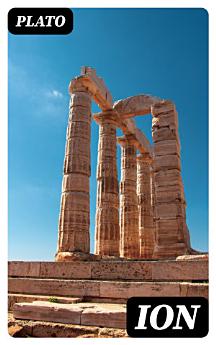關於這本電子書
In "Ion," Plato explores the nature of poetic inspiration through a dialogue between Socrates and the rhapsode Ion. The text masterfully dissects the relationship between the poet, the audience, and the divine, positioning poetry as a medium that evokes emotion rather than communicates knowledge. The literary style is characterized by Socratic dialogue, employing probing questions that reveal deeper philosophical insights on art and its role in society. This work is situated in the context of Classical Athens, where the interplay between thought and creativity was undergoing significant examination, reflecting the intellectual currents of Plato's time. Plato, a pivotal figure in Western philosophy, often grappled with the implications of art and beauty in his works. His experiences in a society rich in cultural expression, combined with his educational background as a student of Socrates, deeply informed his analysis in "Ion." The text serves as a critical reflection of his concerns regarding the influence of poetic art on moral and intellectual development, providing insight into his broader philosophical inquiries. "Ion" is a must-read for anyone interested in the philosophy of art and the dynamics of artistic expression. By engaging with Plato's thoughts, readers will gain a profound appreciation for the complexities of creativity and inspiration, enriching their understanding of both poetry and philosophy.
關於作者
Plato (circa 427-347 BCE) stands as one of the pivotal figures in the development of Western philosophy. Born in Athens to an aristocratic family, he was a student of Socrates and later became the teacher of Aristotle. After Socrates' execution, Plato traveled extensively, absorbing philosophical influences, before returning to Athens and establishing his own school, the Academy. Plato's philosophy encompassed a wide range of topics including ethics, metaphysics, and politics. His dialogues, written as dramatic conversations involving Socrates and other contemporaries, have been influential in the philosophical canon. One of the lesser-discussed yet illuminating works among Plato's dialogues is 'Ion', a short piece exploring the nature of poetic inspiration. In this work, Plato examines the role of divine influence on poets and their intermediation between the gods and humanity. He investigates the concept of whether skill in art comes from knowledge or divine inspiration, a theme resonant in his other works. Plato's contribution to philosophy extends beyond his own writings; his portrayal of Socrates has profoundly impacted how Socrates and his philosophies are perceived. The Platonic ideals, such as his theory of forms, have become fundamental to Western philosophical thought, establishing Plato not only as an acclaimed author but also as a timeless intellectual figure whose ideas continue to provoke contemplation and debate.
為這本電子書評分
請分享你的寶貴意見。
閱讀資訊
智能手機和平板電腦
手提電腦和電腦
你可以使用電腦的網絡瀏覽器聆聽在 Google Play 上購買的有聲書。
電子書閱讀器及其他裝置
如要在 Kobo 等電子墨水裝置上閱覽書籍,你需要下載檔案並傳輸到你的裝置。請按照說明中心的詳細指示,將檔案傳輸到支援的電子書閱讀器。








